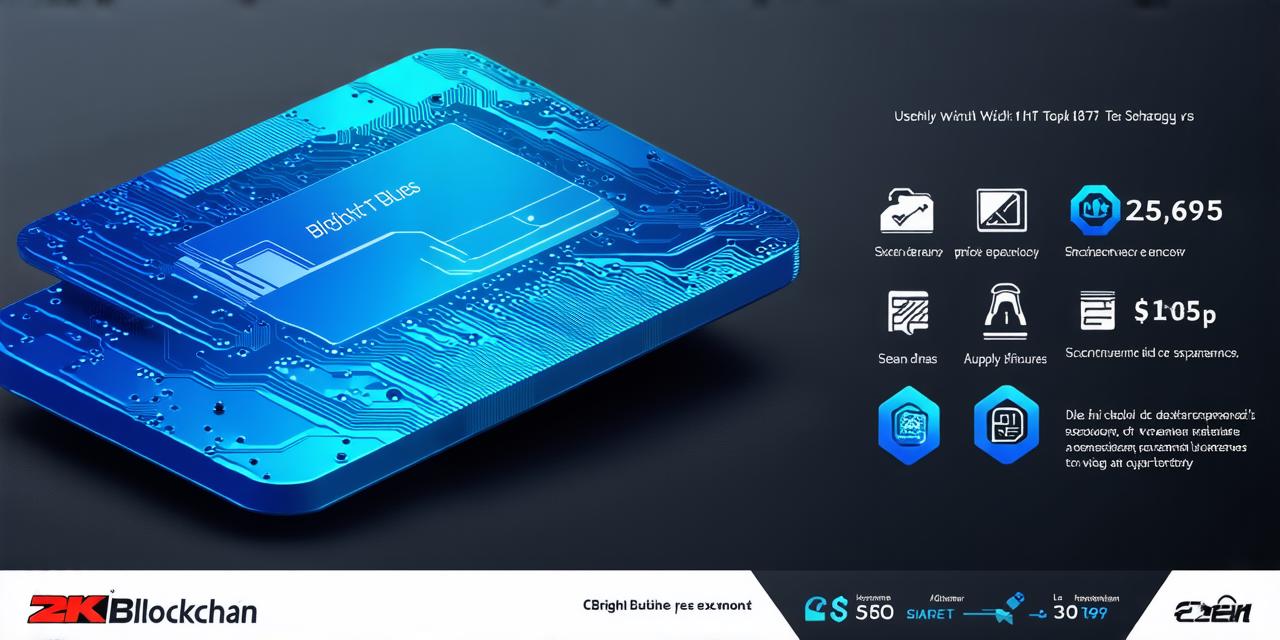Blockchain technology is a decentralized digital ledger that records transactions in a secure and transparent manner. It was initially developed for the cryptocurrency Bitcoin, but its applications go far beyond finance. In this article, we will explore what blockchain is useful for and how it can revolutionize various industries.
What is Blockchain?
Blockchain is a distributed database that contains a continuously growing list of records called blocks. Each block contains a timestamp and a cryptographic hash of the previous block, creating an immutable chain of information. This decentralized architecture makes it resistant to tampering and fraud, making it ideal for securely storing and sharing data.
Blockchain Applications in Finance
The most well-known application of blockchain technology is in finance. It was initially developed as a digital currency that could be transacted directly between individuals without the need for intermediaries like banks. Today, blockchain technology has many other applications in finance, including:
- Smart Contracts: Self-executing contracts with the terms of the agreement written into code. They can automate complex processes and reduce the need for intermediaries.
- Cross-Border Payments: Faster and cheaper cross-border payments using blockchain technology.
- Supply Chain Management: Improved supply chain transparency and security using blockchain technology.
- Trade Finance: Streamlined trade finance processes using blockchain technology.
Blockchain Applications in Healthcare
The healthcare industry is another area where blockchain technology can make a significant impact. Some of the potential applications include:
- Medical Records: Secure and tamper-proof storage of medical records using blockchain technology. This can improve patient privacy and prevent fraudulent activities.
- Clinical Trials: Increased transparency and security in clinical trials using blockchain technology. This can help prevent bias and fraud.
- Drug Supply Chain Management: Improved drug supply chain management using blockchain technology. This can reduce the risk of counterfeit drugs and improve product safety.
- Telemedicine: Secure and efficient sharing of patient data in telemedicine using blockchain technology.
Blockchain Applications in Logistics
The logistics industry is another area where blockchain technology can make a significant impact. Some of the potential applications include:
- Supply Chain Visibility: Improved supply chain visibility using blockchain technology. This can help reduce costs and improve efficiency.
- Track and Trace: Real-time tracking and tracing of goods using blockchain technology. This can improve product safety and prevent counterfeit goods.
- Customs Clearance: Streamlined customs clearance processes using blockchain technology. This can reduce delays and improve transparency.
- Inventory Management: Improved inventory management using blockchain technology. This can help reduce theft and improve accuracy.
Blockchain Applications in Cybersecurity
The cybersecurity industry is another area where blockchain technology can make a significant impact. Some of the potential applications include:
- Identity Verification: Secure and tamper-proof identity verification using blockchain technology. This can improve online security and prevent fraud.
- Data Encryption: Improved data encryption using blockchain technology. This can help protect sensitive information from cyber threats.
- Decentralized Storage: Decentralized storage of data using blockchain technology. This can improve data security and reduce the risk of hacking.
- Cyber Insurance: Streamlined cyber insurance processes using blockchain technology. This can improve transparency and reduce fraud.
Blockchain Applications in Real Estate
The real estate industry is another area where blockchain technology can make a significant impact. Some of the potential applications include:
- Smart Contracts: Self-executing contracts with the terms of the agreement written into code. They can automate complex processes and reduce the need for intermediaries.
- Property Registration: Secure and tamper-proof property registration using blockchain technology. This can improve land ownership transparency and prevent fraud.
- Title Transfer: Improved title transfer processes using blockchain technology. This can reduce delays and improve efficiency.
- Rent Payments: Streamlined rent payments using blockchain technology. This can reduce fraud and improve transparency.
Blockchain Applications in Education
The education industry is another area where blockchain technology can make a significant impact. Some of the potential applications include:
- Credential Verification: Secure and tamper-proof credential verification using blockchain technology. This can improve online security and prevent fraud.
- Microcredentials: Improved microcredential issuance and verification using blockchain technology. This can help recognize and validate skills and competencies in a more efficient manner.
- Scholarship Management: Streamlined scholarship management processes using blockchain technology. This can reduce delays and improve transparency.
- Online Learning Platforms: Improved online learning platforms using blockchain technology. This can help securely store and share educational materials and improve student engagement.
Blockchain Applications in Voting Systems
The voting industry is another area where blockchain technology can make a significant impact. Some of the potential applications include:
- Transparent Voting Processes: Improved transparency in voting processes using blockchain technology. This can help prevent fraud and improve trust in the electoral system.
- Secure Storage of Voter Data: Secure storage of voter data using blockchain technology. This can improve voter privacy and prevent bias.
- Improved Accessibility: Improved accessibility to voting systems using blockchain technology. This can help increase voter turnout and make the electoral process more efficient.
- Anonymous Voting: Secure anonymous voting using blockchain technology. This can improve voter privacy and reduce the risk of intimidation.
Blockchain Applications in Energy and Utilities
The energy and utilities industry is another area where blockchain technology can make a significant impact. Some of the potential applications include:

- Smart Grids: Improved smart grid management using blockchain technology. This can help reduce energy waste and improve efficiency.
- Energy Trading: Streamlined energy trading processes using blockchain technology. This can reduce costs and improve transparency.
- Renewable Energy Certification: Improved certification of renewable energy sources using blockchain technology. This can help incentivize the use of clean energy.
- Demand Response Programs: Improved demand response programs using blockchain technology. This can help reduce energy consumption during peak hours and improve efficiency.
Blockchain Applications in Agriculture
The agriculture industry is another area where blockchain technology can make a significant impact. Some of the potential applications include:
- Supply Chain Management: Improved supply chain management using blockchain technology. This can help reduce food waste and improve product safety.
- Traceability of Products: Real-time traceability of products using blockchain technology. This can help prevent fraudulent activities and ensure product quality.
- Farm-to-Table Transparency: Improved transparency in the farm-to-table supply chain using blockchain technology. This can help build trust with consumers and improve product quality.
- Sustainable Agriculture: Improved sustainability in agriculture using blockchain technology. This can help reduce environmental impact and promote responsible farming practices.
Blockchain Applications in Healthcare
The healthcare industry is another area where blockchain technology can make a significant impact. Some of the potential applications include:
- Medical Records: Secure and tamper-proof storage of medical records using blockchain technology. This can improve patient privacy and prevent fraudulent activities
